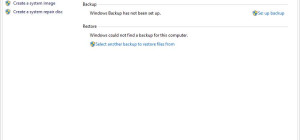 Since last year, virtual reality has cooked up a huge storm in the business world.
Since last year, virtual reality has cooked up a huge storm in the business world.
With the increasing media consumption and an equally rising frequency of creation of content, the ways of showcasing this information have been witnessing major changes. Owing to the changing consumer requirements, numerous methods of making this content available to them have mushroomed. Virtual reality is one of them.
Virtual reality has moved way past the realm of video games. Its promising potential has urged businesses to adopt this emerging trend for marketing.
Dan Rose, Facebook’s vice president of partnership pointed out, “It’s going to require a complete rethinking of storytelling, a complete rethinking of art”.
Without a doubt, virtual reality brings seemingly endless possibilities and experience right at the fingertips of consumers. With that thought, let’s take a look at how virtual reality is going to impact marketing.
Product Demonstrations
A major portion of how a product will be received by the consumers depends on the demonstration. Product demonstration is one of the most effective sales tools. This is because it is the best way to address the concerns of people. It is important to stimulate the interest of consumers in order to get your products out in the market and virtual reality helps you accomplish this easily.
During the launch of Volvo’s XC90 SUV, they created a virtual reality app that places the users in the cockpit and takes them on a ride through the countryside. This is the world’s first VR test drive on a smartphone. The video received 175k views on YouTube.
Such exciting product demonstrations have the potential to capture consumers’ interest and is, therefore, a wonderful sales opportunity.
Banner Advertisements
The effectiveness of virtual reality lies with the fact that it can provide 360-degree storytelling which enthralls the consumers. So far, virtual reality content is usually available on specific platforms or can be watched as an embedded video. However, brands are looking for ways to utilize virtual reality content as advertisements across the websites.
AdsOptimal, a Silicon Valley startup is developing a solution to deliver banner ads containing virtual reality content across various platforms.
According to this startup’s founder, Brad Phiasin, “At AdsOptimal we want headsets to be optional for consumers who view and interact with Virtual Reality ads. Most Virtual Reality content intended for viewing with a VR headset can be rendered in 360° format which can be viewed without a headset. The best Virtual Reality ads should give the audience an option to view the ad with or without a Virtual Reality headset.”
When this solution goes mainstream, companies would no longer need to create specific mobile apps for their virtual reality content.
Virtual Tours
The travel and tourism industry has a lot to benefit from virtual reality. It has the capability of taking users on a tour of the hotel before booking. Guests can also be taken on a virtual tour of some places right from the hotels. For example, Marriott Hotels had launched ‘VRoom Service’ last year that takes guests on a trip to Chile, Rwanda and Beijing.
“We are disrupting our own industry, as we want to be the first to define the next-generation hotel experience”, Marriott Hotel’s vice president of global marketing, Michael Dail pointed out, “We are interested to see how they use this technology and if they’re inspired by the immersive aspects of virtual storytelling, as the technology is advancing so quickly”.
Apart from that, Best Western Hotels & Resorts has been one of the recent adopters of virtual reality with their ‘Best Western Virtual Reality Experience‘. They have been working with Google Street View gathering 1.7 million photos of their North American properties to create virtual reality tours of each hotel.
“To me as a consumer, I think it’s quite an amazing experience”, Dorothy Dowling, Best Western CMO said, “For me, the first time I was doing it, I was looking at the nap of the carpet and it was a really shocking realization to me that I was looking at the nap of the carpet like I was in the room. That I could actually see that degree of texture and get that sense of size and scale. I think, for consumers, that’s really going to redefine the game.”
With such practical applications in place, the virtual reality trend is all set to revolutionize marketing in the upcoming years.
Information Shared By iCreateVR.com







